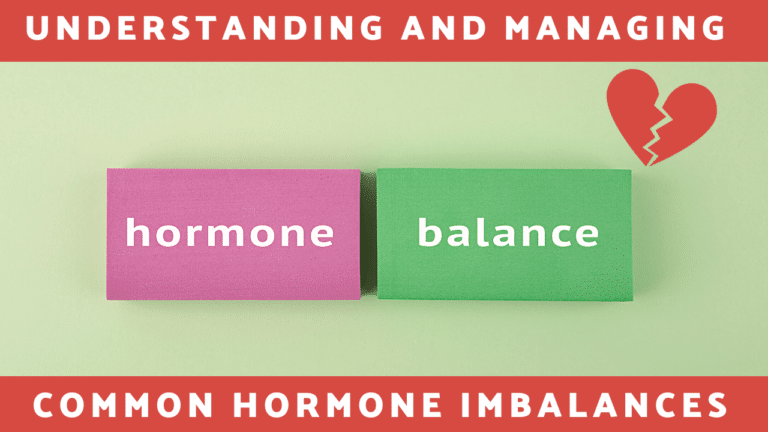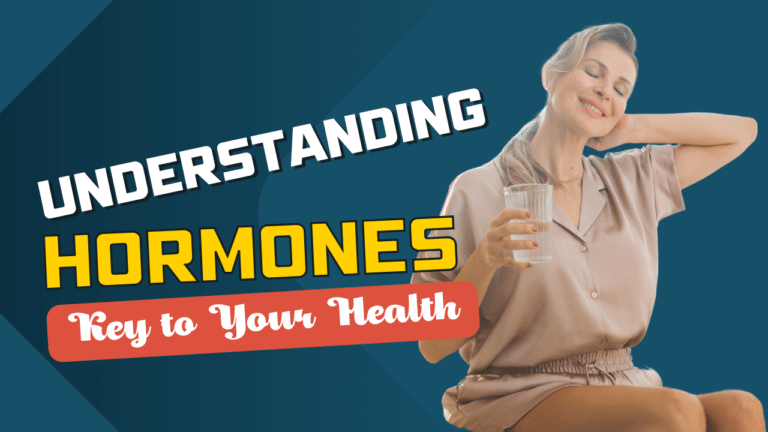Sleep: Why Balance Matters
Introduction
Hormones serve as your body’s chemical messengers, orchestrating countless physiological processes including the intricate dance of sleep and wakefulness. These powerful substances don’t just influence when you feel tired or alert—they fundamentally control the quality, duration, and restorative power of your sleep. Understanding how hormones regulate your sleep-wake cycle reveals why achieving hormonal balance is essential for both immediate rest and long-term health, offering insights into why some people struggle with sleep while others rest effortlessly.
Melatonin: The Sleep Hormone
Often called the “sleep hormone,” melatonin stands as the primary conductor of your body’s circadian orchestra. This remarkable hormone is produced by the pineal gland, a small structure deep within your brain that responds to light and darkness signals from your environment.
How Melatonin Regulates Your Sleep Cycle
Melatonin production follows a predictable daily rhythm, rising in the evening as darkness falls and declining as morning approaches. This natural rhythm signals your body to prepare for rest, effectively reducing the time it takes to fall asleep while supporting consistent sleep patterns throughout the night. When this system functions properly, you experience what sleep researchers call optimal “sleep latency”—the smooth transition from wakefulness to sleep.
When Melatonin Production Goes Wrong
Modern life often disrupts this delicate system through artificial lighting, irregular schedules, and screen exposure before bedtime. These disruptions can shift your natural melatonin production, leading to difficulty falling asleep or maintaining consistent sleep patterns. For individuals dealing with jet lag or shift work schedules, melatonin supplementation has proven particularly effective in helping reset disrupted circadian rhythms and restore normal sleep patterns.
Cortisol: The Stress Hormone
While melatonin promotes sleep, cortisol serves as your body’s natural wake-up call. This stress hormone follows its own distinct daily pattern, playing a crucial role in maintaining healthy sleep-wake cycles when functioning properly.
The Natural Cortisol Rhythm
In healthy individuals, cortisol levels peak in early morning hours and gradually decline throughout the day, reaching their lowest point at night. This natural rhythm helps you feel alert and energized upon waking while allowing your body to wind down for rest as evening approaches. This carefully orchestrated pattern ensures that your energy levels align with your daily activities and sleep needs.
When Stress Disrupts Sleep
Chronic stress, anxiety, or poor sleep habits can disrupt this natural cortisol rhythm, leading to elevated levels during nighttime hours when they should be declining. High nighttime cortisol creates a cascade of sleep problems, including difficulty falling asleep, frequent nighttime awakenings, and non-restorative sleep that leaves you feeling tired despite spending adequate time in bed.
The Vicious Cycle of Cortisol and Sleep Loss
Perhaps most concerning is how sleep deprivation and cortisol elevation feed into each other, creating a difficult cycle to break. Poor sleep quality leads to increased cortisol production, which in turn makes it harder to achieve the deep, restorative sleep your body needs to regulate stress hormones naturally. This cycle can perpetuate chronic sleep problems and contribute to long-term health issues related to stress and inadequate rest.
Growth Hormone and Deep Sleep
Growth hormone represents one of the most fascinating connections between sleep and physical restoration. Unlike other hormones that follow general daily rhythms, growth hormone release is intimately tied to specific sleep stages, particularly the deep, slow-wave sleep phases that occur during the first half of the night.
The Deep Sleep Connection
Growth hormone secretion peaks during slow-wave sleep stages, when your brain waves are at their slowest and your body enters its most restorative state. During these crucial hours, growth hormone facilitates tissue repair, supports muscle recovery, regulates metabolism, and strengthens immune function. This explains why quality sleep is so essential for physical recovery, wound healing, and maintaining optimal body composition.
Consequences of Disrupted Growth Hormone Release
When sleep is fragmented or lacks sufficient deep sleep phases, growth hormone release becomes impaired, leading to compromised recovery and long-term health effects. Athletes and physically active individuals often notice this connection most acutely, experiencing slower recovery times and decreased performance when sleep quality suffers. However, growth hormone’s effects extend far beyond athletic performance, influencing everything from immune system strength to metabolic health.
Age-Related Changes in Growth Hormone and Sleep
As people age, both deep sleep duration and growth hormone production naturally decline, which may contribute to slower healing, changes in body composition, and reduced physical resilience. Understanding this connection helps explain why maintaining good sleep habits becomes increasingly important with age and why sleep quality often correlates with overall health and vitality in older adults.
The Impact of Hormone Imbalance on Sleep
When the delicate balance of sleep-regulating hormones becomes disrupted, the consequences extend far beyond simple tiredness. Hormonal imbalances create complex sleep disorders that can significantly impact daily functioning and long-term health outcomes.
Common Patterns of Hormonal Sleep Disruption
Decreased melatonin production or elevated nighttime cortisol levels represent the most common hormonal contributors to insomnia and poor sleep quality. These imbalances often manifest as difficulty falling asleep, frequent nighttime awakenings, early morning awakening with inability to return to sleep, or sleep that feels unrefreshing despite adequate duration.
The Cascade Effect of Poor Sleep on Hormones
Sleep disruption doesn’t just result from hormonal imbalances—it actively worsens them. Poor sleep increases both cortisol and adrenocorticotropic hormone (ACTH) levels, creating a stress response that further impairs sleep quality. This bidirectional relationship means that addressing sleep problems often requires a comprehensive approach that considers both sleep hygiene and hormonal health.
Beyond the Big Three: Other Hormonal Players
While melatonin, cortisol, and growth hormone receive the most attention, other hormones also influence sleep quality and duration. Neurohormones like orexin and melanin-concentrating hormone play important roles in regulating alertness, appetite, and metabolism in ways that directly impact sleep patterns. Thyroid hormones, sex hormones, and insulin also contribute to sleep regulation, highlighting the interconnected nature of endocrine function and rest.
Practical Tips for Supporting Hormone Balance and Sleep
Achieving better sleep through hormonal balance requires a multifaceted approach that addresses both sleep environment and lifestyle factors that influence hormone production. Small, consistent changes often yield significant improvements in both hormone function and sleep quality.
Optimizing Your Sleep Environment for Hormone Production
Creating conditions that support natural melatonin production forms the foundation of hormone-friendly sleep. This means maintaining consistent sleep and wake times, even on weekends, to reinforce your body’s natural circadian rhythms. Reducing exposure to blue light from screens, overhead lighting, and electronic devices for at least an hour before bedtime allows melatonin production to rise naturally. Creating a cool, dark, and quiet sleep environment further supports this natural process.
Stress Management for Cortisol Regulation
Since elevated nighttime cortisol represents a major barrier to quality sleep, developing effective stress management strategies becomes essential. Regular mindfulness practice, deep breathing exercises, gentle stretching, or meditation can help activate your body’s relaxation response and encourage cortisol levels to follow their natural declining pattern in the evening. Physical exercise, when timed appropriately (not within 3-4 hours of bedtime), also helps regulate cortisol patterns and improve sleep quality.
Supporting Deep Sleep for Growth Hormone Release
Prioritizing the factors that promote deep, slow-wave sleep helps ensure optimal growth hormone release. This includes avoiding alcohol and caffeine in the hours before bedtime, as both substances can fragment sleep and reduce deep sleep phases. Maintaining a comfortable sleep temperature, typically between 65-68°F (18-20°C), supports the natural drop in body temperature that facilitates deep sleep stages.
When to Consider Supplementation
For individuals dealing with circadian rhythm disruptions—such as shift workers, frequent travelers, or those with delayed sleep phase syndrome—melatonin supplementation may provide benefits when used appropriately under healthcare guidance. However, supplementation works best when combined with proper sleep hygiene and timing strategies rather than as a standalone solution.
The Role of Hormone Testing in Sleep Improvement
Understanding your individual hormone patterns can provide valuable insights into sleep difficulties and guide targeted interventions. Walk-In Lab offers comprehensive hormone testing panels that can evaluate melatonin, cortisol patterns, thyroid function, and other hormones that influence sleep quality. This testing provides objective data about your body’s hormone production patterns, helping identify specific imbalances that may be contributing to sleep problems.
Statistics Snapshot
The research on hormones and sleep reveals compelling patterns that underscore the importance of this relationship for overall health and well-being.
Melatonin’s Sleep Benefits
Clinical studies demonstrate that melatonin supplementation can significantly reduce sleep latency, helping people fall asleep several minutes faster than without supplementation. While this may seem modest, the cumulative effect over weeks and months can substantially improve sleep satisfaction and daytime functioning for individuals with circadian rhythm disorders.
Cortisol’s Daily Pattern
Research confirms that healthy individuals experience a distinct diurnal cortisol rhythm, with peak levels occurring in early morning hours and the lowest concentrations at night. This natural pattern supports both optimal daytime alertness and nighttime rest, highlighting why disruptions to this rhythm can be so problematic for sleep quality.
Growth Hormone and Sleep Stages
Studies show that growth hormone release peaks specifically during slow-wave sleep stages, with the majority of daily growth hormone secretion occurring during the first few hours of sleep. This timing explains why sleep quality, not just quantity, plays such a crucial role in physical recovery and health maintenance.
Impact of Sleep Deprivation on Stress Hormones
Research demonstrates that sleep deprivation leads to significant elevations in cortisol levels, creating a stress response that can persist even after a single night of poor sleep. This finding underscores how quickly sleep problems can begin affecting hormonal balance and overall physiological function.
Frequently Asked Questions
What hormone controls the sleep-wake cycle?
Melatonin serves as the primary hormone regulating circadian rhythms, signaling to your body when it’s time to prepare for sleep. Produced by the pineal gland in response to darkness, melatonin levels rise in the evening and fall in the morning, helping coordinate your internal clock with the external day-night cycle.
How does cortisol affect sleep?
Cortisol promotes alertness and energy during morning hours, but elevated levels at night can significantly disrupt sleep onset and quality. When stress, anxiety, or poor sleep habits cause cortisol to remain high during nighttime hours, it creates difficulty falling asleep and can lead to fragmented, non-restorative sleep.
What is growth hormone’s role in sleep?
Growth hormone is released primarily during deep slow-wave sleep stages, facilitating crucial functions including tissue repair, muscle recovery, immune system strengthening, and metabolic regulation. This explains why adequate deep sleep is essential for physical recovery, healing, and maintaining optimal body composition.
Can melatonin supplements improve sleep?
Yes, melatonin supplements can be particularly effective for individuals with circadian rhythm disturbances, such as those caused by jet lag, shift work, or delayed sleep phase syndrome. However, melatonin works best when combined with proper sleep hygiene practices and appropriate timing, rather than as a standalone solution for all sleep problems.
How does poor sleep affect hormone levels?
Sleep deprivation significantly raises cortisol and adrenocorticotropic hormone (ACTH) levels, creating a stress response that worsens both sleep quality and hormonal balance. This creates a challenging cycle where poor sleep leads to hormonal disruption, which in turn makes it more difficult to achieve the restorative sleep needed to normalize hormone levels.
Conclusion
The intricate relationship between hormones and sleep reveals why achieving hormonal balance is fundamental to both immediate rest and long-term health. Melatonin, cortisol, and growth hormone work together in a carefully orchestrated symphony that, when disrupted, can lead to sleep disorders and widespread health consequences. Understanding these connections empowers you to take targeted action through improved sleep hygiene, stress management, and lifestyle modifications that support natural hormone production.
The bidirectional nature of this relationship—where poor sleep worsens hormonal imbalances, which in turn impair sleep quality—underscores the importance of addressing both sleep habits and hormonal health simultaneously. By recognizing the signs of hormonal imbalance and taking proactive steps to support your body’s natural rhythms, you can break the cycle of poor sleep and hormonal disruption.
Walk-In Lab’s comprehensive hormone testing panels provide valuable insights into your individual hormone patterns, offering objective data to guide personalized interventions for better sleep and overall health. Whether you’re dealing with chronic insomnia, recovering from shift work, or simply seeking to optimize your sleep quality, understanding your hormonal profile represents a crucial step toward achieving the restorative rest your body needs to thrive.
This content is for informational purposes only and is not a substitute for professional medical advice. Always consult with a healthcare provider before making changes to your sleep routine or starting any supplementation regimen.





